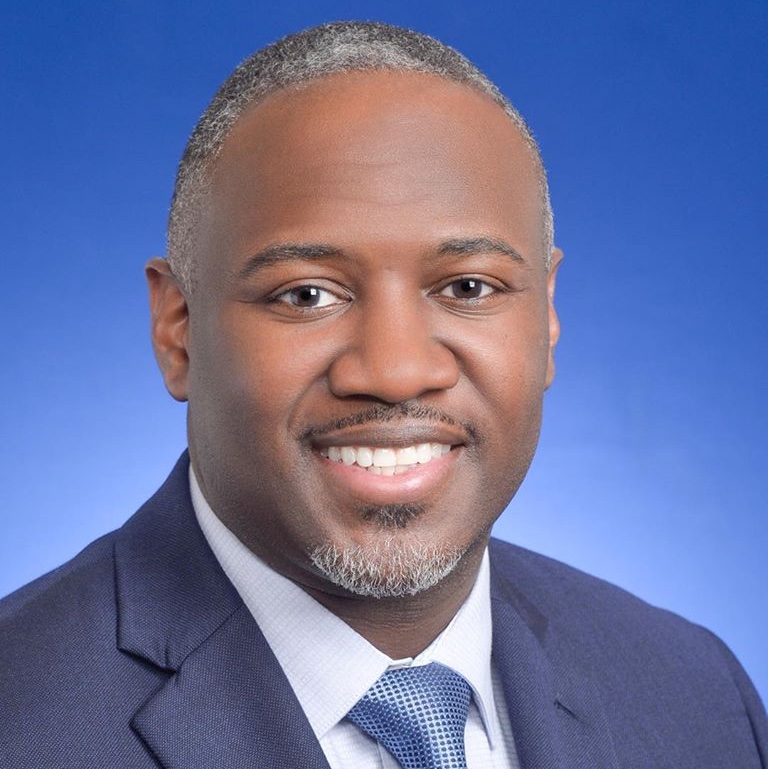
Adrian Coles
The quality of our future is not determined by our present circumstances; it is determined by the resilience of our hope and our willingness to work hard to make that for which we hope a reality. This statement is my testimony, and I hope to help someone else have this testimony too.
I was born and raised in a socioeconomically disadvantaged community in Danville VA. Not only was my family poor, but my hometown was the last capital of the Confederacy. The lack of resources combined with unresolved racial tensions in the city created a challenging environment for a young African American boy. As one can imagine, this environment exemplified the racial-ethnic disparities that result from a lack of racial justice. I’ve witnessed, firsthand, many naturally gifted members of my community fall victim to institutionalized racism in one way or another. This has motivated me to work hard to increase racial-ethnic diversity within math and statistics and to help create inclusive cultures that are characterized by social and professional equity for all.
In fact, my childhood experiences have shaped my core career objectives:
- To advance science that has personal meaning to my family and community
- To create access to and opportunities within STEM disciplines for members of historically excluded communities
- To establish a professional and financial precedent for my family and community to follow
Striving to achieve these objectives helps me be the help that I once needed.
Math and science have always been my favorite subjects. I excelled in these areas throughout my K-12 educational experiences. After high school, I enlisted into the United States Marine Corps. The math skills that I developed during my time in high school were critical to my success in the Marines where my primary role was an electronic technician. However, my interest in statistics didn’t develop until after my military service.
After nearly nine years of honorable military service, I was unexpectedly medically retired. I was not prepared for life beyond the Marine Corps. I had trouble finding a civilian job that would replace my military salary, and I experienced significant financial hardship. At some point, I learned about a program implemented by the US Department of Veterans Affairs called Vocational Rehabilitation. I still had a heart to serve something bigger than myself, so I used this program to enroll in college to become a high school math teacher. I started at a local community college and eventually transferred to the University of North Carolina at Wilmington. I took a statistics course during my senior year at UNCW. I did well, and my stats professor encouraged me to consider statistics as a career. She funded a trip to a SAMSI event in Raleigh NC. This was my first real exposure to the use of statistics to help solve a wide range of real-world problems. I instantly fell in love with the STEM discipline. I switched my focus from secondary mathematics education and decided to go to graduate school for statistics.
I’ve had many proud moments throughout my journey. The proudest moment of my mathematical sciences career was earning my PhD in Statistics from NC State University with the distinction of being the first African American male to earn the degree from the time-honored department. The proudest moments in my personal life are the birth of my children; however, a close second is graduating from Marine Corps boot camp and earning the title US Marine.
My time in the Marine Corps was transformative. In addition to developing a core value for service, those experiences provided me with enduring perspectives on accountability, teamwork, integrity, and leadership that serve me well in my role at BMS, as well as my roles as Chair of the American Statistical Association’s (ASA) Committee on Minorities in Statistics and Co-chair of the ASA’s Antiracism Taskforce.
I mentioned earlier that my third career objective is to establish a professional and financial precedent for my family and community to follow. My ability to accomplish this objective is only because I am standing on the shoulders of those who have come before me. I’m very thankful for my village, personal and professional, and I want to publicly say thank you to all the coaches, mentors, sponsors, and friends that I’ve had along the way. I am because we are.
